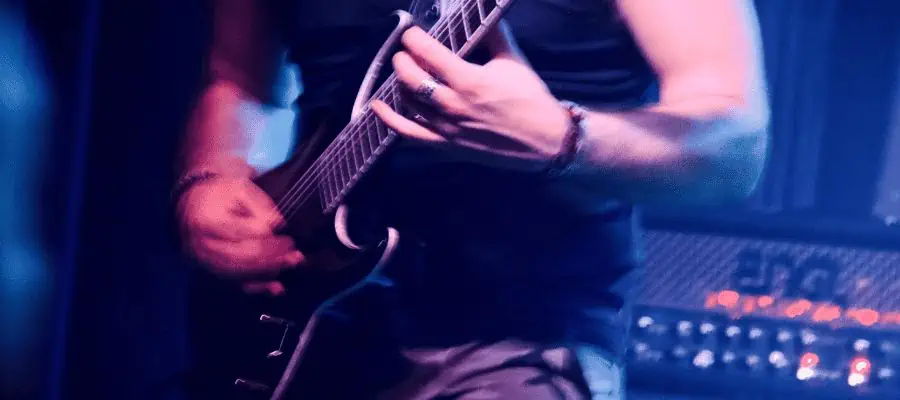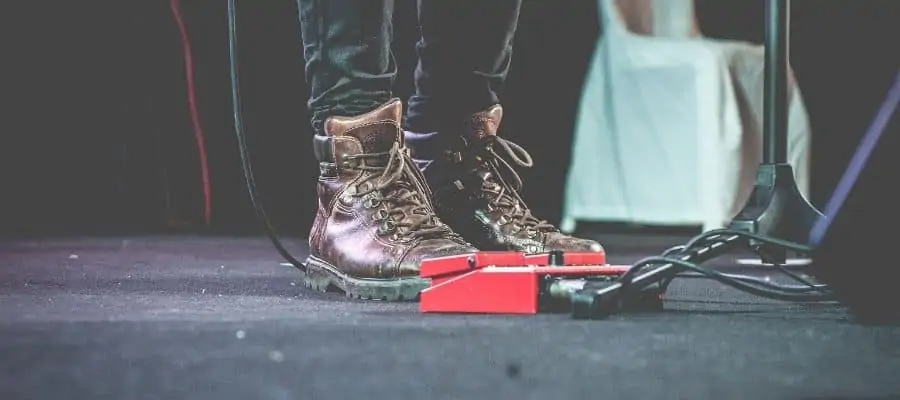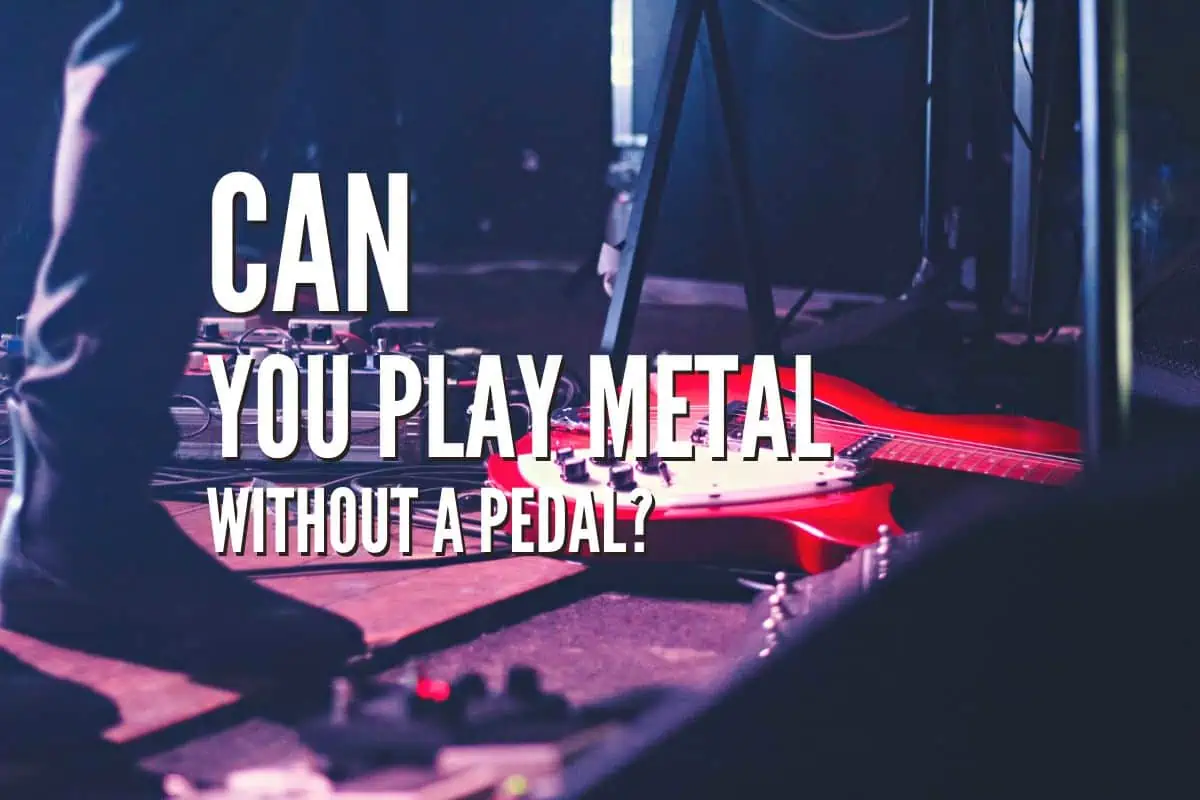Pedals are helpful accessories that help guitarists create specific sound effects that provide more character to their music. Metal, in particular, can benefit significantly from pedals because they use a lot of distortion and need a more aggressive tone. Can you achieve the desired sound if you want to play metal but don’t have a pedal to help you create these specific tones?
While pedals can help you easily create the right tones and effects for metal, they are not strictly necessary. You can achieve the desired tones and effects by using other existing tools. For instance, you can use your amplifier settings to crank up the gain or distortion, guitar knobs to create darker tones, and some playing techniques to achieve the metal sound.
However, if you want more versatility and the ability to create different kinds of metal tones, a pedal setup or a processor will be handy. Also, you can connect your guitar to a smart device or computer to use plugins to reach different effects and craft your metal sound.
Is a Pedal Necessary To Play Metal?

While pedals are not essential for playing an electric guitar, they are pretty helpful because they provide a lot of texture and different tones to your sound. Distortion pedals, in particular, are pretty practical for genres like metal, allowing you to experiment with varying levels of aggressiveness and heaviness, which are staples in metal.
However, not every guitarist has pedals; some find them unnecessary, and others may not have the budget to invest in extra accessories. If you’re one of these guitarists, you may wonder if you can play metal without these accessories.
Thankfully, you can play metal even if you don’t have any pedals. Metal does require a particular type of sound, but you can achieve the desired effects in other ways. Many musicians often choose something other than pedals to play metal and similar genres.
How To Achieve the Right Metal Sound if You Don’t Have Pedals
If you want to play metal but you don’t have pedals that will help you with the distortion and aggressive sound, you can experiment with the following alternatives:
- Use the tone and volume knobs. Your electric guitar typically has several different electronic controls that help you adjust the tone and volume of your guitar. Using these knobs, you can achieve dark and heavy tones without a pedal.
- Use the distortion channel of your amplifier. You can use the built-in distortion channels on your amplifier if you want more distortion. Experiment with the gain or distortion channels to achieve more or less the same effect that a pedal would provide.
- Use muting techniques. If you’re an experienced guitarist, you can use the palm muting technique by placing the edge of your hand on the strings near the bridge. This technique will help you create a darker and heavier tone.
- Experiment with your playing styles and techniques. Master and experiment with all the different guitar playing styles that can create the desired effects on your sound. Techniques like pull-offs or hammer-ons are ideal for a more metal sound.
- Consider using an older amplifier. Older amplifiers may not be as durable or sophisticated as new ones, but they can easily create a lot of distortion.
- Experiment with the alternate tuning. You may achieve heavy tones using lower tunings, creating a more aggressive sound. Drop D and drop C are the most common tunings that can help you for this particular purpose.
Try these techniques and experiment with different settings to create your desired sound. If all you’re looking for is distortion, the right amplifier will do the job just as well, so you won’t feel the absence of a pedal. However, if you’re looking for more effects or a more convenient way of creating your desired metal sounds, you may need to invest in a pedal.
What Can Guitar Pedals Do?

While guitar pedals are unnecessary, they can sometimes be instrumental, even for more complex sound effects. They can help you achieve various effects that add more character and shape to your sound. Whether you just want simple, subtle changes to the tone of your guitar or complex effects that transform your music, pedals can help you immensely.
Typically, if you want various options and layered sounds, you should invest in a few pedals to help you. You can experiment with combinations of pedals and amplifier effects to help you generate the perfect sounds for your music.
What Pedals Should I Choose for Metal?
Metal is a pretty complex music genre that requires specific effects that can elevate your sounds. It requires the guitar tones to be heavier and darker. Here are some types of pedals that you can use to achieve the authentic metal sound:
- Distortion or overdrive pedal. This is the most basic pedal for metal; it allows you to add gain to the guitar signal, which creates an aggressive and heavy tone. Depending on the specific type of distortion you want, you can choose between analog and digital pedals.
- Delay and reverb pedal. These pedals are pretty standard in several music genres, including metal. They provide more character and space to your sound, especially your solos.
- Noise gate pedal. A noise gate pedal helps you eliminate unwanted effects of specific techniques and sounds of metal music. This pedal mutes the guitar signal that falls below a certain level when it becomes too harsh or unpleasant.
- Compression pedal. These pedals are especially helpful for solos because they help provide more sustain. They can also help musicians who like playing fast and rhythmic music.
While these are the most common pedals used in metal, several others can help you achieve the metal sound you want. Some other valuable pedals for this music genre are the Equalizer pedal, the Pitch Shifter, and the Wah Wah pedal.
Another option is to use plugins instead of physical guitar pedals. You can use an audio interface to connect your guitar to a computer or a smart device and use plugins to create unique tones. Plugins are basically the software versions of physical guitar pedals that can get you any tone you want.
Final Thoughts
Metal is a versatile and complex music genre that needs extra effects to create the perfect dark and heavy tones. These extra effects are typically provided by pedals, accessories that can help you with different aspects of your sound, like pitch, sustain, and distortion.
However, these pedals are not strictly necessary to play metal. You can achieve several of the effects mentioned above by utilizing your amplifier, guitar knobs, and your techniques. All these aspects can help you create the right tones and effects for metal; you can play whatever you want without buying extra accessories.
If you found this article useful, you may want to save this pin below to your Guitar board.

Recent Posts
Some guitarists insist on buying an expensive amplifier with their electric guitar. They assume that this is a must for every type of guitarist out there. However, in some situations, this isn’t...
Top 50 Free Realistic Guitar VST Plugins With Sound Examples
As technology has rapidly advanced in the recent decade, computers are stealing more and more roles from physical musical instruments and accessories. Nowadays, you do not need expensive amps,...

